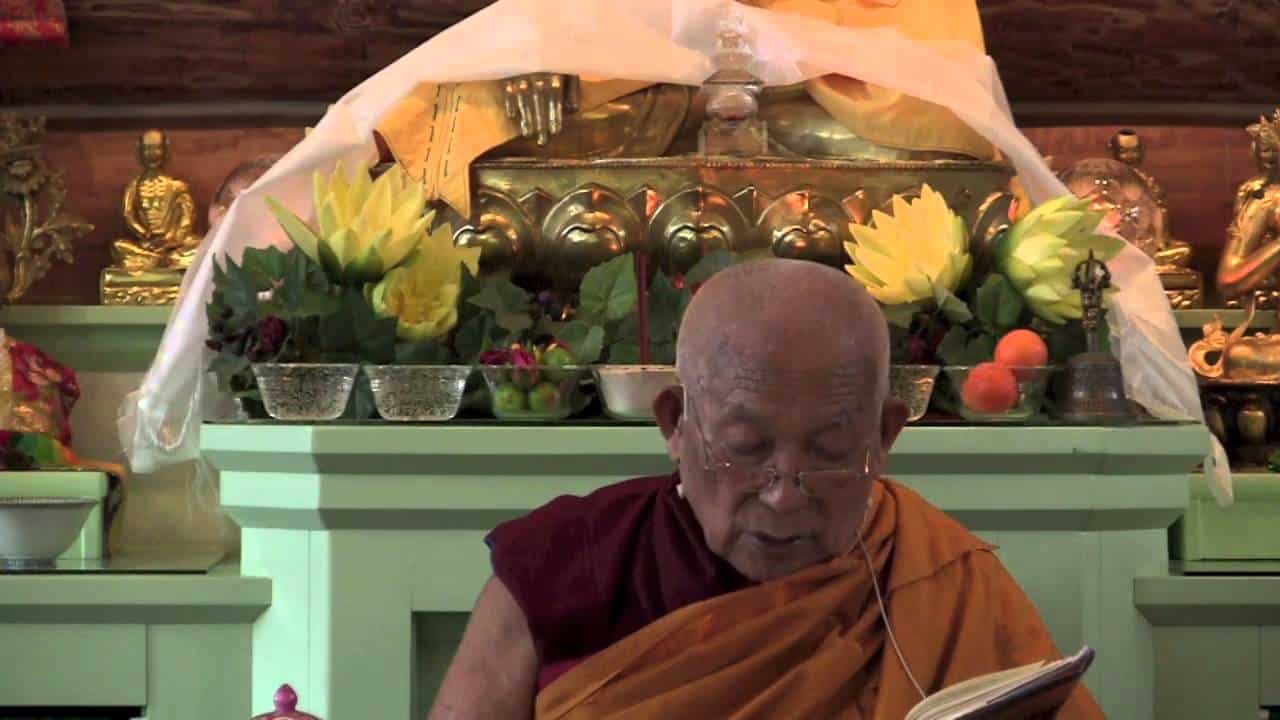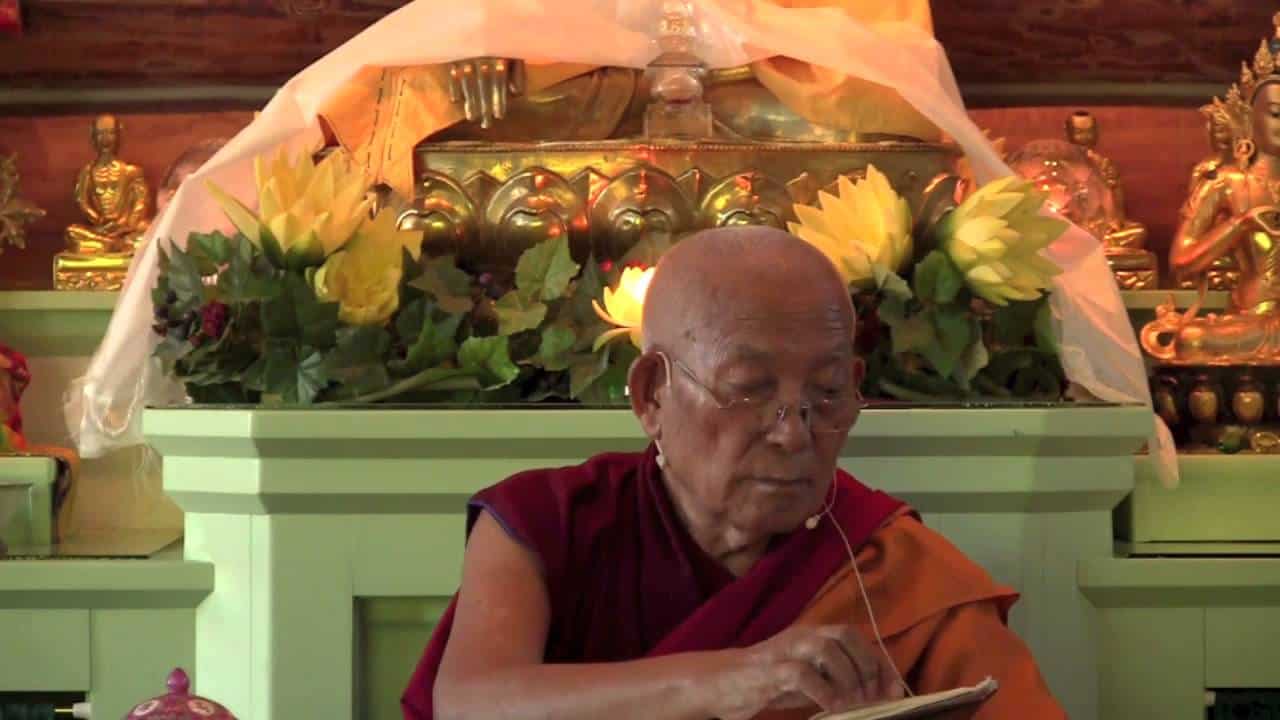Chapters 7-8: Verses 171-177
Part of a series of teachings on Aryadeva's 400 Stanzas on the Middle Way given on an annual basis by Geshe Yeshe Thabkhe from 2013-2017.
Motivation from the Lalitavistara Sūtra
The three worlds are as impermanent as autumn clouds.
The birth and death of beings resembles scenes in a play.
The transient lives of beings are like lightning in the sky,
Rushing by quickly like a fast-flowing mountain stream.
Verses 171-177
- Repudiating accumulation of constructive karma for the sake of attractive objects, power, and wealth
- Repudiating accumulation of destructive actions
- Explaining the need to abandon contaminated karma
- How the Buddha showed us how we have to give up our craving for cyclic existence and practice the Dharma
- Why disturbing emotions can be abandoned and showing how it is possible to do so
- Since attachment has no inherently existent focal object, we can eliminate attachment
Geshe Yeshe Thabkhe
Geshe Yeshe Thabkhe was born in 1930 in Lhokha, Central Tibet and became a monk at the age of 13. After completing his studies at Drepung Loseling Monastery in 1969, he was awarded Geshe Lharampa, the highest degree in the Geluk School of Tibetan Buddhism. He is an emeritus professor at the Central Institute of Higher Tibetan Studies and an eminent scholar of both Madhyamaka and Indian Buddhist studies. His works include Hindi translations of The Essence of Good Explanation of Definitive and Interpretable Meanings by Lama Tsongkhapa and Kamalasila's commentary on the Rice Seedling Sutra. His own commentary, The Rice Seedling Sutra: Buddha’s Teachings on Dependent Arising, was translated into English by Joshua and Diana Cutler and published by Wisdom Publications. Geshela has facilitated many research works, such as a complete translation of Tsongkhapa’s The Great Treatise on the Stages of the Path to Enlightenment, a major project undertaken by the Tibetan Buddhist Learning Center in New Jersey where he teaches regularly.


